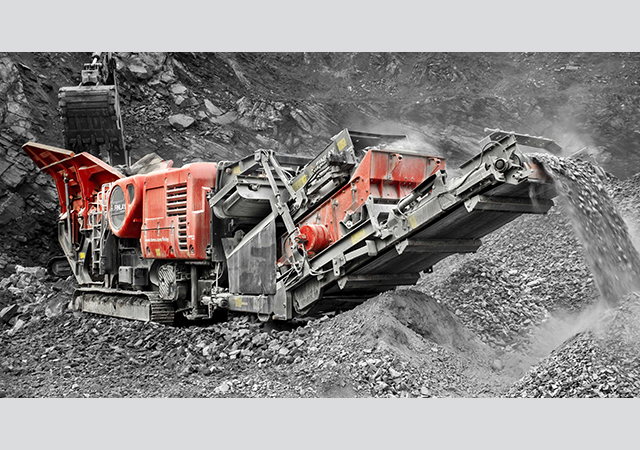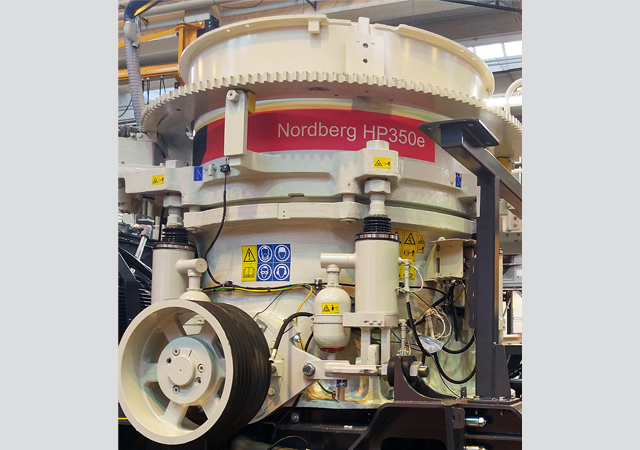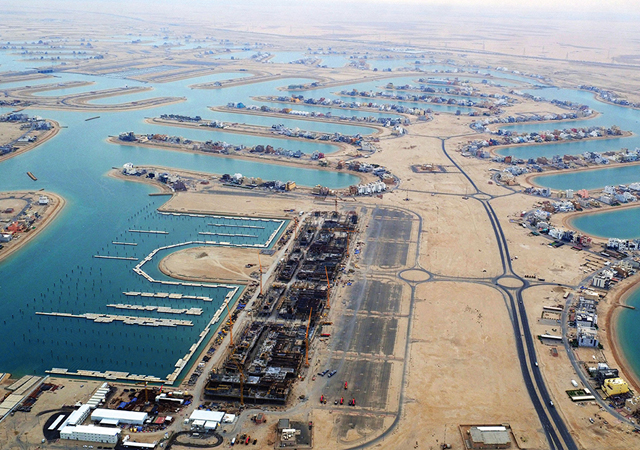
 The current phase of the Sabah Al-Ahmad Sea City project requires some 1.35 million cu m of in-spec beach sand.
The current phase of the Sabah Al-Ahmad Sea City project requires some 1.35 million cu m of in-spec beach sand.
CDE, a leading wet processing solutions provider, has played a key role in accelerating construction at the Sabah Al-Ahmad Sea City (SAASC) located some 90 km south of Kuwait City. The company’s innovative sand processing plant is helping the developers meet tight production targets for this ambitious megaproject.
Sabah Al-Ahmad Sea City, one of the world’s largest real estate developments, is on track to become a sprawling metropolis in the Al-Khiran area that will eventually house over 250,000 residents. The current phase requires some 1.35 million cu m of in-spec beach sand by summer to meet production targets.
With construction gaining pace, developer La’ Ala Al-Kuwait Real Estate Company has partnered with CDE, a leading supplier of sand and aggregate washing solutions, to help meet its busy production schedule.
CDE’s expertise came into play when the existing on-site plant struggled with inconsistent raw materials and couldn’t keep pace with production demands.
CDE’s Area Sales Manager, James Murphy, highlights the challenges: “The material specifications for the desired beach sand are quite stringent. Pair this with feed material that varies greatly, and you can see the need for an adaptable solution in order to keep up with production demands.”
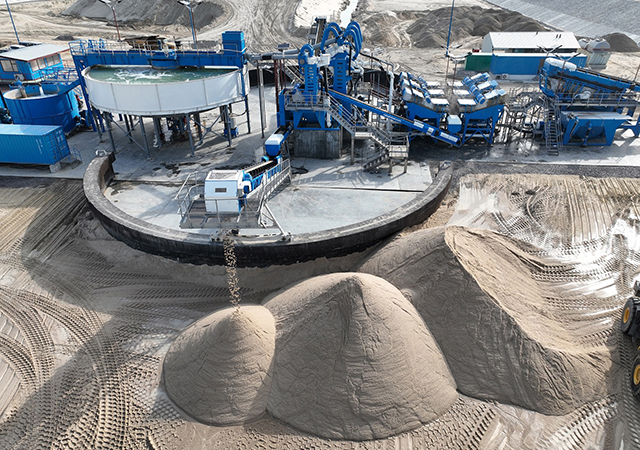 |
|
The CDE wash plant is delivering over 2,500 tonnes of fine sand for pipe bedding and almost 1,800 tonnes of coarse beach sand every day. |
The existing wash plant set-up that was reaching the end of its operational life was employed on site for over a decade. A configuration of bucket wheel classifiers and tracked screens, the system was unable to adapt to variations in the raw feed material and was operating beyond its efficiency range, resulting in the loss of high-value sand to tailings ponds.
Mark Dunglison, Director for Planning & Design, Earthworks & Marine at the La’ Ala Al-Kuwait Real Estate Company, says the system had served the project well but a more modern solution was needed to sustain the momentum behind the project.
“It played an important role in getting the project to where it is today, but our production demands required a more adaptable solution. We’re working with dry feed material excavated from below sea-level, which can be highly variable, and so we needed a solution that could respond to these variations and deliver consistent output without disruption to the production schedule.
“Traditionally, most wash plants work with fresh water or some sort of brackish water. At this site, we’re dealing with salt water, which has salinity of up to 35,000 ppm (parts per million). It’s very corrosive. The plant had to be able to work with high saline levels,” he explains.
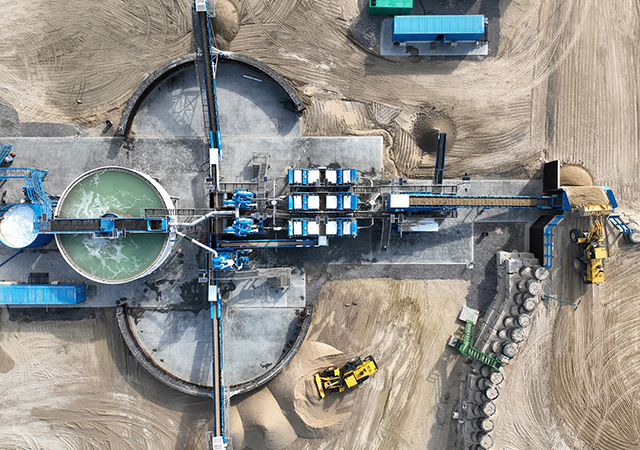 |
|
CDE’s solution comprises its M5500 modular wash plant, EvoWash 15, a configuration of six Infinity fine screens, and an efficient water management and recycling system. |
In response, CDE proposed a solution comprising its M5500 modular wash plant, which integrates feeding, screening, washing and stockpiling on a single chassis; the EvoWash 151, a compact sand washing system that screens and separates smaller sand and gravel fractions through integrated high-frequency dewatering screen, sump and hydrocyclones; a configuration of six Infinity fine screens; and an efficient water management and recycling system to recover up to 90 per cent of process water for immediate reuse.
To address high levels of salinity, CDE introduced a series of additional measures to protect the plant.
“CDE added additional protective measures to the pipework, to the tanks, wherever it could. Stainless steel non-corrosive products, rubber linings, special coatings and more are all carefully considered to ensure this plant can work in a very extreme saline environment,” Dunglison says.
“We explored a variety of solutions with different suppliers, but CDE’s approach won out. The team demonstrated real technical expertise and understanding of our needs when they proposed an alternative approach to what others were recommending,” he adds.
“Our solution is built around improving fine screening capabilities and optimising product blending to maintain high material throughout and improve product yield,” explains Ruchin Garg, CDE’s Regional Manager for the Middle East & Africa. “The varying feed can be managed remarkably well by blending more or less of the fine product into the target beach sand. The ability to fine tune ensures optimum plant utilisation and maximum up-time – the net result being a higher overall yield.”
With the capacity to process up to 435 tonnes per hour, the CDE wash plant is delivering over 2,500 tonnes of fine sand for pipe bedding and almost 1,800 tonnes of coarse beach sand every day as part of the ambitious targets to deliver the project requirements by the summer.
On average, the plant is receiving and processing over 6,000 tonnes of feed material every day.
Commenting on the environmental benefits of the plant, Dunglison says: “We’re more efficient in our diesel use. The flocculant that we’re using within the thickener allows water to be recycled, which we didn’t have previously. It means we require significantly less top-up water. This is good because it limits how much we need to draw from the natural environment and what we discharge back into the water course is well within EPA tolerance.”
A central feature of the solution is the integration of CDE’s plant management app, CDE SmartTech.
Dunglison says the innovation underlying the app is in keeping with the vision of the Sabah Al Ahmad Sea City.
“The ability to monitor the operation and health of the plant in real time with in-depth data is highly valued and demonstrates real commitment to innovation. It’s providing us with important metrics to be able to measure production against forecasts, and we’re very pleased to say that the plant is helping us exceed our targets.”
CDE says its SmartTech enables customers to understand their plant’s performance, schedule maintenance and easily order parts. It enables operators, managers, and owners to make informed decisions to increase productivity, improve operational efficiency and maximise up-time.

















.jpg)













 (1).jpg)














































